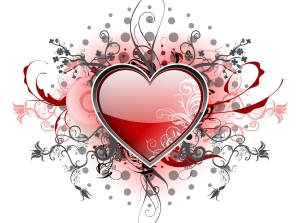Yesterday, I wrote a post about how we need to dig deeper to find a heroic heart. It’s timely, since I’m anxiously awaiting the debut of a few short stories out in the lands of publishing. It’s also relevant for another reason: just got back from WisCon and finished watching Season 5 of Doctor Who.
It’s really difficult for me to read books without tearing apart their structure; it’s becoming more challenging to do that with television shows and movies, too. I can relate to the many sides of the writer’s struggle — fulfilling the requirements of whatever format the story is in, watching screenplays get tweaked according to the producer’s needs, meeting IP guidelines.
However… It still blows my mind that here it is — 2011 — and we still struggle with painting “alternative” heroes: people of color, gay characters and, in many cases, strong non-bitchy women. In my article, I talked about how physical descriptions shouldn’t limit a writer, because the hero/heroine’s journey is about overcoming a limitation of some sort. If anything, I don’t understand why we don’t see more diversity in a heroic character, not less.
Enter my frustration with the female characters in Season 5 of Doctor Who. The Doctor is an iconic hero: like Superman, he doesn’t change. To understand him, to know him, I try to identify with the characters around him. I cannot, in any way shape or form, relate to Amy Pond. The actress herself isn’t the challenge; I don’t believe her character’s story. I cannot buy that she has fallen into extreme hero worship, where the Doctor has become her own personal Jesus, yet she still managed to fall in love with Rory. She’s a character that is only important because of the things that happen around her. She has absolutely no personal power of her own, regardless of what the Doctor says.
What I felt made the David Tennant era so believable, was the sharp contrast in the moments when he was having fun and the moments when he was totally and utterly alone. Donna Noble was my favorite companion, because there was no “love” there. They were best friends. I understood that she couldn’t physically handle the power she took into her system, and I was okay with that.
I feel that romance is Season 5’s biggest weakness. The minute the Doctor’s Companion starts to go down that path of “My Doctor,” it all falls apart because we know — as the audience — there is absolutely no chance in hell of that happening. There’s no romantic tension. There’s no conflict. There’s a very powerful, very suave, unattainable man that no one — with the possible exception of River Song in this season — can ever be with. Even in the episode where the Doctor is a lodger, he still gets the near-immediate attention of Sophie and the infatuation builds, leaving the “couch potato” out in the cold. I don’t buy it when Sophie flips the switch when Craig professes his love for her either.
I know it sounds like I’m being harsh, but I enjoy the show immensely and recognize how difficult it might be to write this series. The Doctor is a problematic character to write into a romance, because there is a sort of meta-storytelling tactic going on in each episode. We know he’ll never fall in love, so why introduce love interests in the first place? Romantic tension would be something that could be done, provided we believe there’s a chance — even a glimmer of hope — that he might end up in the happily never after with another character.
The happily never after is something I feel the show could take risks with, but it doesn’t. The continuous storyline about the crack in Amy’s wall is really where Season 5 begins and ends. I just wish there was more to emotionally relate to without being pulled out of the story completely. I still like and enjoy Doctor Who, but there’s something missing from Season 5: a heroine I can relate to.

 I joined a local romance writer’s group last year and, admittedly, I was a bit nervous at first because I knew nothing about that arm of the publishing industry.
I joined a local romance writer’s group last year and, admittedly, I was a bit nervous at first because I knew nothing about that arm of the publishing industry.